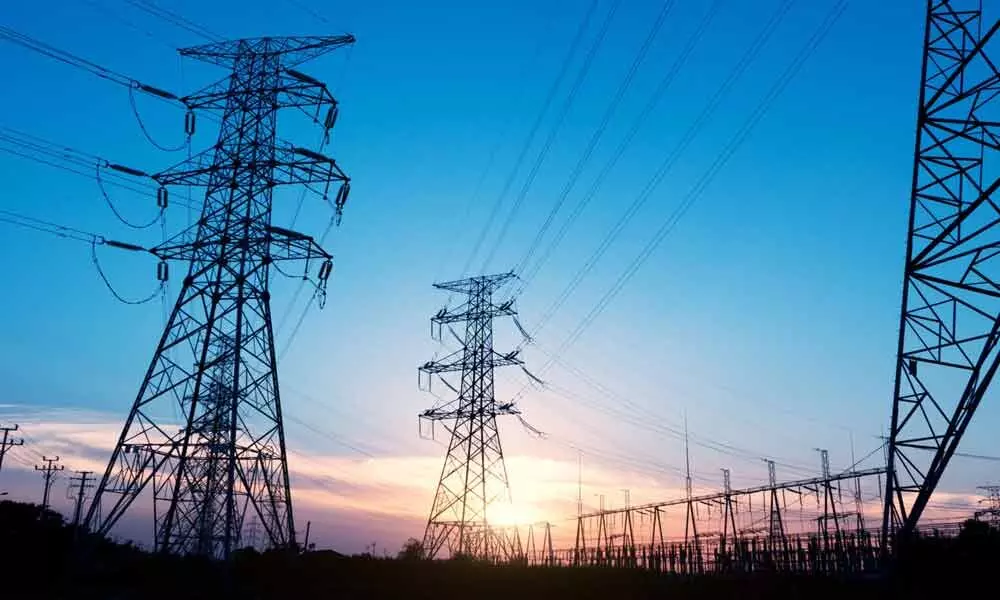Live
- Dharani portal services paused till Dec 16
- Komuravelli Mallanna Swamy Jatara from Jan 19
- Study tour for TG legislators soon
- State cabinet expansion by Dec 31: Ponguleti
- 2 Narayanites bag gold medals in IJSO-2024
- Jail superintendent suspended in ailing farmer handcuff incident
- CM Revanth orders probe into farmer’s handcuff incident
- Handcuffing of farmer after heart stroke draws BRS’ ire
- Jagga Reddy questions unilateral decisions of AICC in-charges in TG
- Tribal women to get trained in multiple skills
Just In
Vijayawada: Amendment to Electricity Act 2003 welcomed


Appreciates the settlement of row by the Centre by honouring the power purchase agreements amicably Says proposal for uniform applicability of the Electricity Act will lead to economic prosperity and to become competitive
Vijayawada: AP Chambers of Commerce and Industry Federation has welcomed the decision of the Central government inviting the suggestions from the stakeholders to the proposed amendment to the Electricity Act, 2003. In a letter to the Union Ministry of Power RK Singh, AP Chambers president K V S Prakash appreciated the settlement of row by the Centre by honouring the power purchase agreements amicably.
In a six-page letter to the Union Minister, the Chambers suggested the improvement of plant load factor (PLF) of the thermal power stations to 80 to 82 per cent from the present 55 to 60 per cent to drive down the consumer tariff to Rs 4.25 per kwh.
Welcoming the series of amendments, the Chambers said that the proposal for uniform applicability of the Electricity Act would lead to economic prosperity and to become competitive. However, there are certain issues which should be revisited, it said.
Referring to the amendment to Section 14, the Chamber said that there is a need for greater clarity in the selection of distribution sub-licensee and distribution franchisee (DSL/DF). The minimum renewable purchase obligations (RPOs) and hydro power purchase obligations (HPOs) can create a disharmony at the state-level. It has also been noted that some state ERCs have passed transmission charges order regulations for wind and solar energy generating companies on installed capacities (in MW) terms. If this is not corrected by a policy directive, the wind and solar plants will be forced to close-down as they become financially unviable.
The suggestions included the issue of cross border trade of electricity, payment security mechanism, surcharge on open access, deemed tariff adoption, cost reflective tariff, constitution of selection committee to recommend members for commissions/authority, the formation of Electricity Contract Enforcement Authority (ECEA), inclusion of judicial members and expeditious filling of vacancy, enhancement of powers of Appellate Tribunal of Electricity.

© 2024 Hyderabad Media House Limited/The Hans India. All rights reserved. Powered by hocalwire.com






